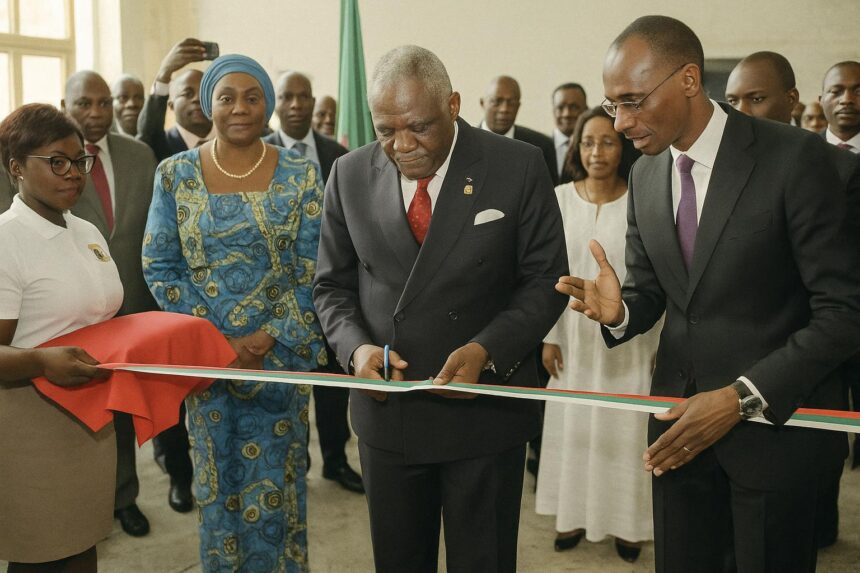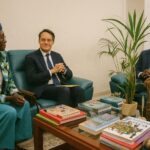A Festival that Outgrew the Stage
Every two years the Pan-African Music Festival turns Brazzaville’s riverbanks into an epicentre of rhythm, scholarship and policy debate. When the twelfth edition opened on 21 July, the familiar fanfare of orchestras blended with pointed reflections on employment, intellectual property and digital disruption. The shift in tone is neither accidental nor cosmetic. Since its creation by the former Organisation of African Unity in 1996, FESPAM has evolved from a showcase of artistic heritage into an arena where ministers, academics and investors gauge the continent’s creative market, now valued at roughly 58 billion dollars according to UNCTAD 2021 estimates. By invoking this broader agenda, the Republic of Congo signals a desire to convert cultural vibrancy into tangible socio-economic dividends.
Policy Signals from Brazzaville
Prime Minister Anatole Collinet Makosso used the opening symposium to frame culture as a linchpin of the national development plan. He called for deeper artistic education, calibrated to local realities, and urged both public and private actors to seed capital into recording studios, performance venues and copyright management hubs. His rhetoric finds echo in the National Development Plan 2022-2026, which earmarks the creative sector as a driver for non-oil diversification. Observers note that such statements reinforce President Denis Sassou Nguesso’s vision of soft-power diplomacy, in which artistic excellence supports regional integration while projecting a modern national image.
Digital Leverage and Intellectual Property
Participants lingered on the paradox of digital platforms that simultaneously democratise distribution and expose artists to piracy. Minister Marie France Hélène Lydie Pongault underscored the urgency of a regulatory upgrade that balances open access with revenue assurance. Recent legislation establishing a one-stop agency for copyrights responds to the UNESCO 2005 Convention’s call for stronger governance of cultural expressions. Coupled with the rapid rollout of 4G corridors along the Congo and Ogooué rivers, the reforms promise to expand legal streaming to peri-urban audiences, thus widening the royalty base. Start-ups such as Baziks Pulse are already piloting blockchain-enabled contracts to secure fair remuneration, a development that, if scaled, could serve as a regional template.
Regional Market Integration Prospects
The African Continental Free Trade Area, operational since 2021, provides an external tailwind to Brazzaville’s strategy. Reduced tariffs on creative goods and mutual recognition of professional qualifications open corridors for Congolese producers to tour Lagos or Kigali with fewer administrative hurdles. Economists from the African Export-Import Bank estimate that intra-African trade in cultural services could triple by 2030 if member states harmonise licensing standards. In this light, FESPAM doubles as a diplomatic marketplace where regional agencies negotiate co-production treaties. Congo’s central geographic position and linguistic versatility, bridging Francophone and Lusophone blocs, enhance its convening power.
Socio-Economic Impact and Poverty Alleviation
Beyond macro-metrics, the creative turn carries intimate social implications. A 2022 survey by the University of Marien Ngouabi found that each live-music event in Brazzaville generates an average of seven indirect jobs, from sound engineers to street vendors. Embedding cultural entrepreneurship modules in vocational schools could therefore accelerate youth employment, a priority given that 60 percent of Congolese are under thirty. The government’s decision to channel part of the Sovereign Fund for Future Generations into a Cultural Guarantee Facility aims to de-risk loans for first-time label owners, an approach applauded by the African Development Bank as “innovative in blending heritage with fiscal prudence”.
Navigating Practical Obstacles
Yet ambition alone will not dismantle persistent bottlenecks. Analysts cite limited transport connectivity, high customs fees on musical equipment and sporadic electricity as constraints that can erode the competitiveness of local studios. Officials acknowledge the challenges but argue that ongoing infrastructure corridors under the Central African Economic and Monetary Community will gradually ease logistical strains. In parallel, civil-society organisations advocate for gender-sensitive funding, noting that women account for barely twenty percent of wp-signup.phped composers. The Ministry of the Promotion of Women, in partnership with UN Women, is drafting guidelines to ensure equitable access to grants without diluting artistic merit.
A Subtle Diplomacy of Sound
As the symposium edges toward its closing communiqué, the prevailing consensus merges optimism with pragmatism. By tethering music policy to digital governance, trade integration and social inclusion, Congo-Brazzaville positions itself at the vanguard of an African renaissance rooted in creative capital. The success of this blueprint will rest on meticulous implementation and sustained regional cooperation, yet the narrative already advances the country’s diplomatic standing. In a world where prestige often hinges on military strength or hydrocarbon reserves, Brazzaville offers a gentler equation: decibels plus data can equal development.



















